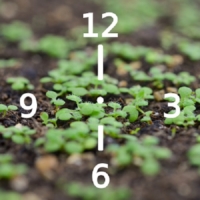
Presentation
The circadian clock is an internal 24 h timing device that allows, plants and animals, including humans to know the time of day. How nutrients interact with the circadian clock is little understood in plants. Magnesium (Mg) literally drives fuel sources as it regulates over 300 biochemical reactions and the chelation to nucleotidyl phosphate forms. In plants Mg is indispensable for photosynthesis as it is the central atom of chlorophyll. This project aims at dissecting the signalling pathways that allow the circadian clock to respond to Mg nutrition, in particular the interactions that interactions occur between light, sugars and Mg, for which we already have evidence. We will make use of the tools that have been developed in both laboratories to provide mechanistic insight in to the role of magnesium in the circadian clock of Arabidopsis, a cress that is the plant biology equivalent of the mouse, suited to genetic studies and fast growing.
Promoters
- Alex Webb, Department of Plant Sciences, University of Cambridge
- Nathalie Verbruggen, Interfaculty School of Bioengineering, ULB
Thanks to the Foundation’s support, Annelie Gutsch has been hired as a postdoctoral researcher to work on this project.


